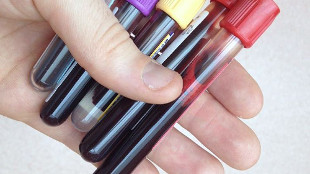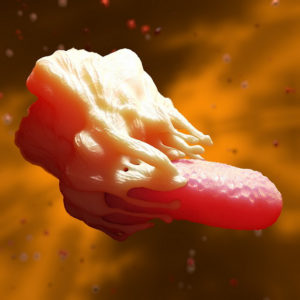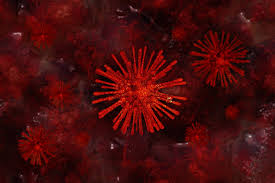Highlights
Whole blood miRNA profiles are altered in patients with BTC compared to healthy participants irrespective of tumour location or clinical setting.
Quantification of 4 whole blood miRNAs captures diagnostic information independent from CA 19-9, blood counts, liver function and inflammatory markers.
Candidate diagnostic miRNA are implicated with tumour immunity in independent resected tissues.
Abstract
Background & Aims
Late diagnosis is a critical factor undermining clinical management of patients with biliary tract cancer (BTC). While biliary tumours display extensive inter-patient heterogeneity, the host immune response may be comparatively homogenous, providing diagnostic opportunities. Here, we investigated whether cancer-associated systemic reprogramming could be detected non-invasively to improve diagnosis of BTC.
Methods
In this prospective Danish study, whole blood (WB) microRNA (miRNA) profiling was performed in samples from 218 patients with BTC, 99 healthy participants, and 69 patients with differential diagnoses split into discovery (small RNA-sequencing) and validation (RT-qPCR) cohorts. miRNA expression and activity were further investigated in 119 and 660 BTC tissues, respectively.
Results
Four WB miRNAs (let-7a-3p, miR-92b-5p, miR-145-3p, miR-582-3p) were identified and validated as diagnostic of BTC compared to healthy participants in univariable analysis. Two diagnostic miRNA indexes were subsequently identified that were elevated in patients with BTC and in patients with differential diagnoses, compared to healthy participants. Combining these miRNA indexes with serum CA 19-9 significantly improved the diagnostic performance of CA 19-9 alone, consistently achieving superior area under the curve (AUC) values irrespective of clinical setting (minimum AUC>0.84) or tumour location (minimum AUC>0.87). The diagnostic information captured by miRNA indexes was not recapitulated by routine clinical measurements. Index miRNA expression in BTC tissues was associated with distinct pathobiological and immune features.
Conclusions
WB miRNA profiles are altered in patients with BTC. Quantification of miRNA indexes in combination with serum CA 19-9 has potential to improve early diagnosis of BTC, pending further validation.
Lay Summary
Surgery is currently the only curative intervention for patients with biliary tract cancer (BTC). However, resection is not possible for most patients who are diagnosed with late-stage disease. With the aim of identifying new early diagnostic opportunities, we performed small RNA-sequencing on whole blood (WB) and identified a circulating “microRNA” (miRNA) signature that could distinguish patients with BTC from healthy participants. These miRNAs significantly improved the diagnostic potential of the routinely measured marker, CA 19-9, and were implicated in distinct immune processes in tumour tissues….







